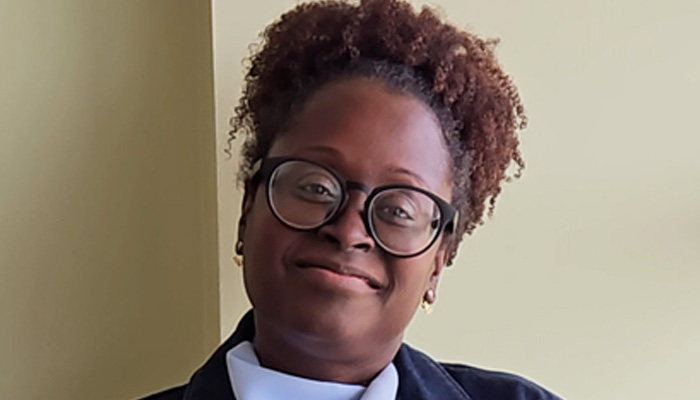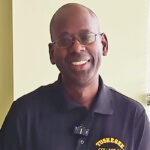When Dr. Gloria Washington talks about her work, her passion for both people and technology comes through immediately. As the an Associate Professor of Computer Science and Director of the Human-Centered AI Institute at Howard University and a Principal Investigator with the Research Institute for Tactical Autonomy (RITA), she has built her career at the intersection of artificial intelligence and the human experience.
Her specialty, human-centered computing, explores how the human body and behavior can inform recognition systems and drive innovation. “I was really interested in creating a project that would allow me to do both things — study human behavior, but then also the AI part of it,” she explains. That combination drew her to RITA, where she leads research that safeguards critical systems and shapes the future of trustworthy AI. Dr. Washington was recently recognized nationally for her contributions to the field, a testament to the impact of her work and mentorship.
Q: Can you introduce yourself and your field of study?
Dr. Gloria Washington: My name is Gloria Washington. I am an Associate Professor here at Howard University, and I am working as a Principal Investigator on the RITA project. My field is computer science, and I focus on human-centered computing, which is the study of how human body-based measures can be used for recognition and also for understanding behavior.
Q: What brought you to RITA?
What brought me here was really interesting projects related to human-centered computing. That is a field that a lot of people do not really get into, but because I am very people-centered, I was interested in a project that would let me do both things: study human behavior and also focus on the AI part of it.
Q: What is the most rewarding part of this work?
The most rewarding part is working with students and working on research that really will help protect our systems in the United States.
Q: What first sparked your curiosity in science and technology?
I was always interested in understanding humans and the human condition, and how technology can be used to create a better world for people. I wanted to create AI to help the human condition, and that connects directly with RITA’s mission.
Q: Who has been a mentor or role model for you?
I grew up in Kansas City, Missouri, and I went to Lincoln University in Missouri, a lot of people do not know about it. I had a mentor there who really helped me see that I needed to get my PhD. She would always talk to me about pursuing it, and at the time it seemed impossible. But she showed me how it could be done. Now at Howard, I think about that mentorship and the way I guide my own students as a faculty member and a research scientist. I hope they look at me and see how it can translate into their future, because they can create whatever they want for themselves.
Q: Why does your research matter for the next generation?
It matters because people need to see that they can create their own opportunities using technology. It does not always mean you have to work for someone else. You can start your own business and create something for yourself and your family.
Q: What advice would you give to students or young professionals interested in this research?
A lot of students do not realize how important the arts are in STEM. The creative side matters too. You can be creative and use AI at the same time. Find something you are passionate about outside of AI and then bring that passion into your work. It can be the basis for building your own tools or even starting a business. That will open your eyes to what is possible.





